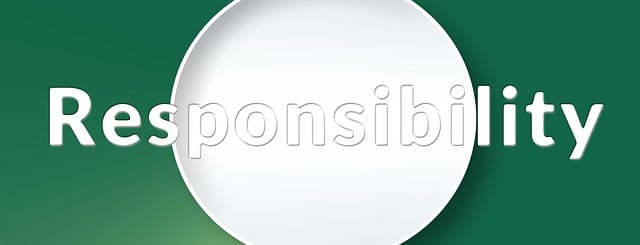Debt consolidation combines multiple high-interest credit cards into a single loan with a lower rate, simplifying payments and saving money on interest. To qualify, individuals need good credit and income stability. Lenders offer various types of consolidation loans, such as unsecured personal loans or home equity options, so it's crucial to research and compare rates and terms. After consolidating, effective financial management involves budgeting, monitoring credit scores, making timely repayments, and avoiding impulse purchases to achieve long-term debt freedom.
Struggling with multiple credit card debts? Consider combining them into one loan through consolidation. This strategic move can simplify repayment and potentially lower interest rates, saving you money in the long run. By consolidating your debt, you transform several payments into a single, manageable one. This article guides you through understanding debt consolidation, its advantages, eligibility requirements, choosing the right loan type, applying, and effective post-consolidation financial management tips to help you achieve financial freedom.
- Understanding Credit Card Debt Consolidation
- Benefits of Combining Multiple Credit Cards
- Eligibility Criteria for Debt Consolidation Loans
- Choosing the Right Loan Type and Lender
- The Process: Applying for a Consolidation Loan
- Tips for Effective Post-Consolidation Financial Management
Understanding Credit Card Debt Consolidation

Credit card debt consolidation is a strategic approach designed to simplify and streamline multiple credit card payments into one manageable loan. By combining several high-interest credit card balances, borrowers can potentially reduce their overall interest expenses and enjoy the convenience of making just one monthly payment. This method can be particularly beneficial for individuals burdened by multiple cards with varying due dates and rates, making it harder to keep track and make on-time payments.
Debt consolidation involves taking out a new loan, usually from a bank or credit union, which is then used to pay off the existing credit card balances. This unified loan offers a single, often lower, interest rate compared to the multiple cards previously held. Borrowers can choose between different types of loans for consolidation, such as personal loans or home equity loans, depending on their financial situation and eligibility. Consolidating debt into one loan can provide better financial control, simplify budgeting, and potentially free up funds by eliminating multiple monthly credit card payments.
Benefits of Combining Multiple Credit Cards

Combining multiple credit cards into one loan, often referred to as consolidating debt, offers several significant advantages for individuals burdened with high-interest credit card debt. One of the primary benefits is simplified financial management. By consolidating, you transform several payments into a single, manageable loan with potentially lower interest rates. This simplification makes it easier to track and budget your expenses, allowing for better control over your finances.
Additionally, consolidating debt can lead to substantial savings on interest charges. With a consolidated loan, you may secure a lower interest rate than the average rates on your individual credit cards. Over time, this reduction in interest payments can free up a significant portion of your income, enabling you to pay off the loan faster or allocate that money to other essential expenses or savings goals.
Eligibility Criteria for Debt Consolidation Loans

To be eligible for a debt consolidation loan, individuals typically need to meet certain criteria set by lenders. Firstly, borrowers should have multiple credit card debts they wish to consolidate under one loan. This could include credit cards with varying interest rates and balances. Lenders usually require a minimum credit score to assess the borrower’s financial health and ability to repay the consolidated debt. A good credit history demonstrates responsible borrowing habits and increases the chances of securing favorable loan terms.
Additionally, lenders may consider factors like income stability and existing debts. They’ll evaluate if your income is sufficient to cover monthly payments for the consolidated loan while managing other financial obligations. It’s important to remember that consolidation isn’t suitable for everyone; those with very high debt-to-income ratios or recent bankruptcy might face challenges in qualifying. However, even with these requirements, many individuals find that consolidating their credit card debt into one loan can simplify repayment and potentially lower overall interest costs.
Choosing the Right Loan Type and Lender

When considering a debt consolidation loan, it’s crucial to select the appropriate type that aligns with your financial goals. The most common options include personal loans and home equity loans or lines of credit. Personal loans are unsecured, meaning no collateral is required, making them accessible but often with higher interest rates. On the other hand, home-based lending products utilize your property as security, potentially offering lower rates but carrying the risk of foreclosure if you default.
Researching lenders is an integral part of this process. Look for reputable financial institutions known for transparent practices and competitive rates. Compare loan terms, including interest rates, repayment periods, and any associated fees. Online lenders often provide convenient applications and faster approvals, while traditional banks may offer more personalized service and potentially better rates for borrowers with excellent credit.
The Process: Applying for a Consolidation Loan

When considering a consolidate debt into one loan, the first step is to apply for a consolidation loan. This process involves several key steps. First, evaluate your current credit situation and determine your eligibility for a consolidation loan based on factors like your credit score and existing debts. You can check your credit report from major credit bureaus to assess your standing.
Next, shop around for lenders offering consolidation loans. Compare interest rates, terms, and fees from different lenders to find the most favorable option. Once you’ve identified a suitable lender, prepare necessary documents such as proof of income, employment details, and information about your existing debts. Submit an application, and if approved, you’ll receive funds to pay off your multiple credit card debts, streamlining your repayment process into a single loan with potentially lower interest rates.
Tips for Effective Post-Consolidation Financial Management

After successfully consolidating your credit card debt into one loan, effective financial management becomes key to ensuring long-term stability and avoiding future debt pitfalls. Start by creating a detailed budget that allocates your income towards necessary expenses, savings, and loan repayments. This provides clarity on your spending habits and helps prevent excessive or impulsive purchases.
Regularly monitor your credit score, as consolidating debt can positively impact it, reflecting responsible financial management. Aim to pay more than the minimum required amount on your consolidated loan each month to reduce interest accumulated over time. Additionally, consider setting up automatic payments to streamline your repayment process, ensuring timely and consistent contributions towards debt eradication.

